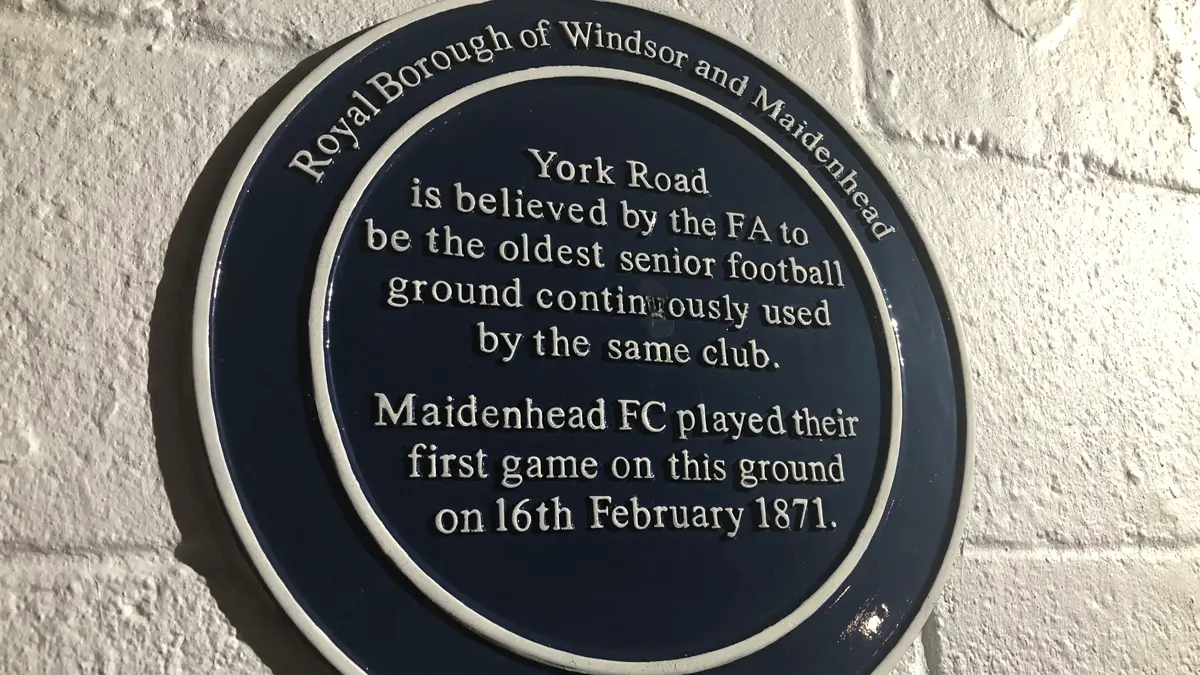Maidenhead United FC were given the go-ahead to install an additional 528 seats at York Road at a planning panel on Wednesday night (March 15).
Exciting plans for expansion include a new 224-capacity stand adjacent to The Cage, and an extension of the existing stand by more than 300 seats.
However, given that it has been less than a year since the council and the football club finalised an agreement acquiring land to build a new stadium at Braywick Park, it does beg the question: why are they expanding York Road?
Context
The 2-2 draw against Wrexham AFC was played in front of a sellout crowd of 3,534 – the Magpies’ largest league attendance since Slough Town visited York Road during the 1925/26 season. Statistics alone prove that this, sadly, was a one-off. 817 returned for the Boreham Wood game three days later, marking the club’s lowest league attendance – bar the ‘COVID season’ of 2020/21 – since promotion to the fifth division six years ago.
York Road is more than capable of holding a National League crowd; for sure, there is occasionally a need to make arrangements for larger followings like Wrexham, but on the whole supporters can comfortably watch a game with ample room around them.
However, ‘never say never’ is somewhat of a mantra of Maidenhead United. Whilst a promotion charge can be dismissed this season, reported plans to go full-time mean that the possibility of another title-winning campaign can never fully be ruled out – Sutton United completed such a feat during the aforementioned COVID season, so why couldn’t the Magpies?
That is not, one should mention, the optimism of a supporter, but the view of the footballing authorities. Even though Maidenhead plan to relocate to Braywick Park – having held consultations as recently as October – the club is required to prove it can meet Football League regulations should it achieve promotion to League Two.
An analogy
Imagine you’ve had a long week at work, and you’re looking forward to a pint or two before going home. You put on your trainers, heading out with the intention of getting an early night.
After an enjoyable hour in the pub, a close friend texts you to ask if you fancy a drink as you’re about to settle up your tab. You agree to stay out for one more, meet your friend and have a long overdue catch-up. You’re having a great night when you spot an old work colleague and the beers start flowing.
With last orders called and the night still young, you and your friends decide to go to a nightclub. However, there is a problem, only realised when the bouncer reminds you of the dress code and that your trainers do not meet the requirements of the establishment. Had you worn your smart shoes preparing for any eventuality, you’d meet the requirements and be free to enjoy the night; instead, it’s a walk home in the rain thinking ‘what could have been’.
That, essentially, is a similar plight faced by National League clubs. If an outfit does not have the provisions to meet the requirements of the league above, they’re simply not allowed in. It makes logical sense to prepare for all eventualities, even in Maidenhead’s case where the long-term plan is to build a new ground just down the road. A league can refuse promotion to a side which has earned the opportunity on merit; Poole, Hungerford and Darlington were all refused their playoff places in 2016/17 National League South season due to their grounds not meeting NL requirements, with 7th-placed Hampton taking the place of the former two.
Planning
Planning is a complicated process in local democracy. First and foremost, a detailed (and quite often costly) application must be submitted – a club can’t just build new grandstands without consulting their neighbours first. Residents are then provided an opportunity to comment on the application within a set time period (usually 4-6 weeks). After that, councillors discuss the proposals at a monthly planning panel and (hopefully) give the green light. It’s a process which can take several months.
Once permission has been granted, a development must start within three years, or it must be resubmitted. For National League clubs who do not meet EFL requirements, they must have provisions in place so that work can begin should promotion has been achieved. By having permission to improve York Road, the Magpies can start work on improvements as soon as the season finishes, should they be required to do so.
So, while it may seem bizarre for United to propose improvements to a ground they plan to leave in the near future, it is a sensible and logical decision once all factors are considered.
100 Berkshire Football Icons
As we’re nearly 10 years old, we’d like to create a big list of a hundred Berkshire football icons who’ve made an impact on and off the pitch over the last 10 years.
Football in Berkshire has a Breaking News WhatsApp Channel where we’ll send you updates on all the latest football news from the Royal County. You can join Breaking Berkshire Football News by clicking here.
- Read more stories like this: Enterprise National League, Football in Maidenhead, Maidenhead United, York Road





